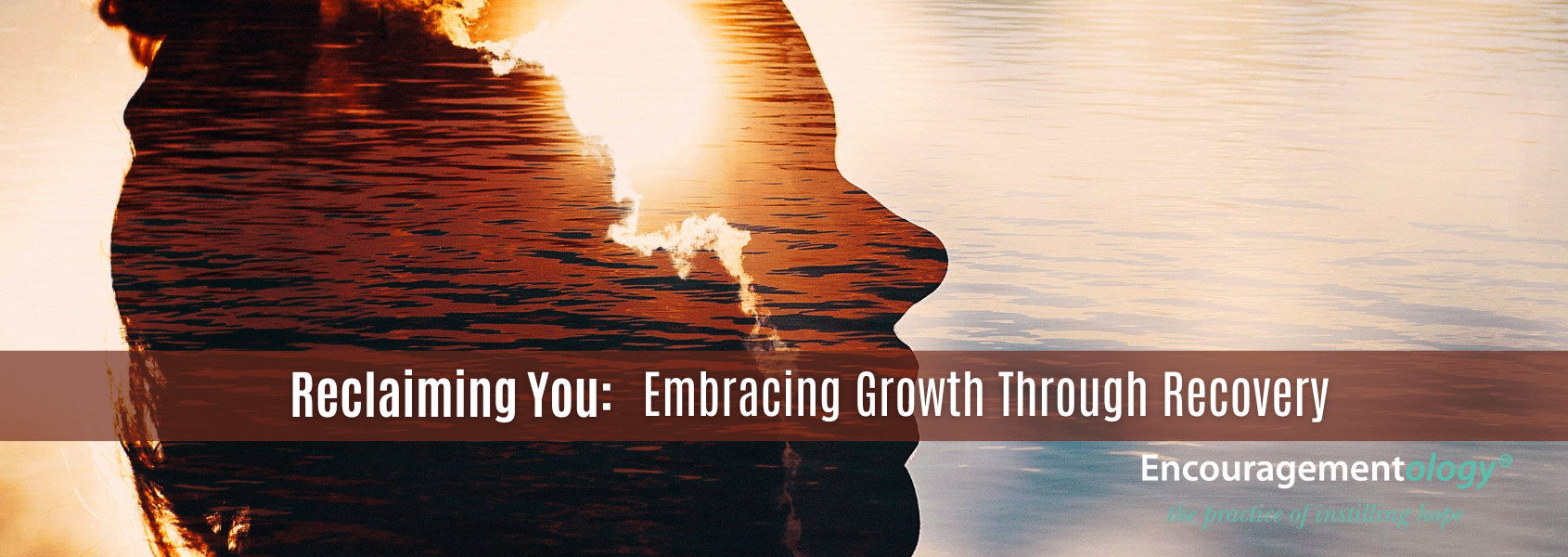SHOW NOTES:
On this show….we are striving to embrace growth through recovery as we set out to reclaim YOU. We are embarking on a profound journey of self-discovery and transformation. It requires courage, resilience, and a willingness to embrace change. Are you ready? Oh boy, that’s the question. How many times have you found yourself at a crossroads knowing you need to make a change but unsure about the next step? What to do and if you are capable enough to do it. Let’s first define recovery: a return to a normal state of health, mind, or strength. The action or process of regaining possession or control of something stolen or lost. What has been stolen or lost? We can all dig into our bag of regrets to find something we wish we could undo and to regain something we no longer have. By focusing on personal growth and self-empowerment, you can reclaim your authentic self and create a life that is meaningful and fulfilling.
So that’s our aim. We are looking to regain our sense of self through discovery and awareness. Your recovery journey is personal but you shouldn’t go it alone. In fact, in my mind, it’s the second step – reach out for help after the first, surrendering to the idea that you aren’t able to do it alone.
News flash, if unhealthy habits were easy to overcome our human statistics would look a lot different. Celebrate Recovery broadens their reach by addressing HURTS, HABITS, AND HANGUPS in their 12-step program offered in 20,000 churches around the world. CR adds the Spirit to the mix to help heal people suffering from addiction and abuse.
The program addresses not just alcoholism and drug addiction, but also codependency, depression, eating disorders, gambling, sexual addiction, and sexual abuse.
A “hurt” could be classified as any life experience that may have damaged your heart, some offense against you that crippled your ability to deal with the world in a healthy way.
“Habits” tend to be unhealthy patterns that often start as a perceived “remedy” for some problem in your life, but end up turning into a chronic bad behavior or addiction. Habits are the repeat, default scripts you run to when the going gets tough and continually leads to trouble in your life.
“Hang-ups” are those roadblocks that keep you from progressing further in God’s plan for your life. They are often shaped by some bent thinking you may have received as a child, or some unhealthy attitude you may have adopted as a means of coping with life’s challenges.
If you’re interested in checking them out…you can Google Celebrate Recovery programs in your area to find meeting times and places.
Maybe, you’re just at the beginning stages of understanding where you are in your life in order to come to terms with the potential of making a change….HEY, that’s a starting point so keep listening!
Reclaiming yourself through recovery is a deeply personal journey that involves healing and growth. While the exact steps may vary from person to person, here are some general guidelines:
- Recognize the Need for Change: Acknowledge that you want to make a change in your life and commit to the recovery process.
- Seek Support: Surround yourself with a supportive network of friends, family, therapists, and support groups who can help you through your recovery journey.
- Educate Yourself: Learn about your condition or addiction, including its causes, effects, and treatment options. Knowledge can empower you to make informed decisions.
- Set Goals: Define clear, achievable goals for your recovery. These goals can be small, manageable steps that help you stay focused and motivated.
- Develop Healthy Coping Mechanisms: Replace unhealthy behaviors with positive coping strategies, such as mindfulness, exercise, or creative activities.
- Practice Self-Care: Take care of your physical, emotional, and mental well-being. This includes getting enough rest, eating healthily, and engaging in activities that bring you joy.
- Address Underlying Issues: Identify and address any underlying issues that may have contributed to your condition or addiction, such as trauma or mental health disorders.
- Celebrate Your Progress: Recognize and celebrate your achievements, no matter how small. This can help you stay motivated and focused on your recovery goals.
- Stay Committed: Recovery is a lifelong process, and setbacks are a natural part of the journey. Stay committed to your recovery goals and seek help when you need it.
- Help Others: Once you have made progress in your own recovery, consider helping others who are going through similar challenges. Sharing your experiences can be a source of strength and inspiration for others.
CHALLENGE: Recovery is a unique and individual journey, so it’s important to find what works best for YOU. Remember to be patient and compassionate with yourself as you navigate the ups and downs of the recovery process. Lean into your support as you learn and grow!
I Know YOU Can Do It!

